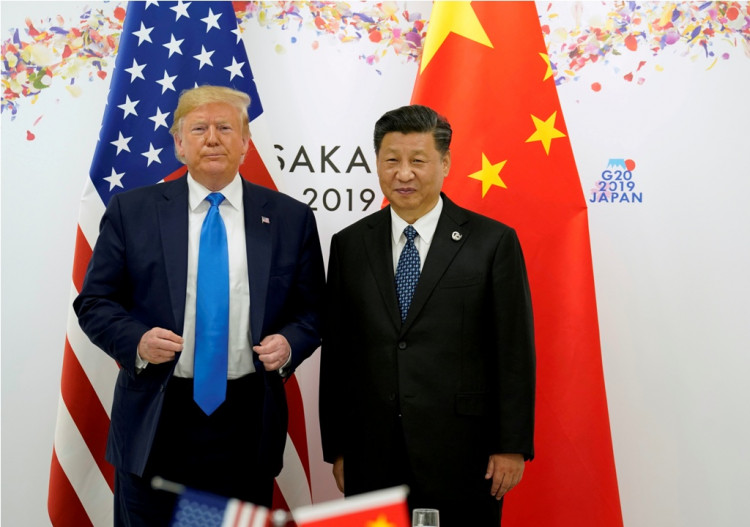The White House is still considering restricting U.S. investments in some Chinese firms and is also apparently seeking to prevent Chinese companies from listing on Wall Street.
These investment restrictions leaked over the weekend come ahead of the upcoming talks on Oct. 10 to 11 to mitigate mounting damage from Trump's trade war against China.
Analysts see both moves as part of a Trump administration gambit to put more pressure on China to surrender to U.S. demands at the forthcoming talks in Washington D.C.
On Friday, U.S. media announced the Trump administration was considering curbing U.S. investments in China, as well as possibly blocking all U.S. financial investments in Chinese firms. White House sources cited by media said these twin moves are in their preliminary stages and nothing has been decided. No time has also been set for the implementation of these restrictions.
These White House sources said a ban on U.S. investments in Chinese firms is supposed to protect U.S. investors from excessive risk due to the absence of strong regulatory protections in China.
The U.S. Department of the Treasury, however, took exception to media reports the U.S. wants to ban Chinese firms from listing on the three main Wall Street indices. In a statement, the treasury department said it does not currently plan to stop Chinese companies from listing on U.S. exchanges.
"The administration is not contemplating blocking Chinese companies from listing shares on U.S. stock exchanges at this time," said Treasury spokeswoman Monica Crowley to Bloomberg.
It was previously reported over the weekend the Trump administration intends to delist Chinese companies from Wall Street. This blow is seen as part of a broader effort by the Trump administration to cap U.S. investment in Chinese companies to place more pressure on China during the Oct. 10 to 11 talks.
Shares of e-commerce giant Alibaba Group, internet and AI firm Baidu Inc. and other Chinese companies plummeted on Friday in trading following the news. The yuan weakened to RMB7.15 to US$1.00.
Chinese Vice Premier Liu He, an economist, will lead the Chinese delegation to the trade talks. His fields of expertise include macroeconomics, industrial structure, new economic theory, and information technology.
On Sept. 25, President Donald Trump claimed Chinese leaders "want to make a deal very badly. And it could happen.... It could happen sooner than you think."
The resumption of trade talks come at an unwelcome time for Trump, who will be in the midst of an impeachment investigation in October. Some analysts say a comprehensive deal -- or any deal, including a deal Trump said he doesn't want -- might take some of the political pressure off Trump.






